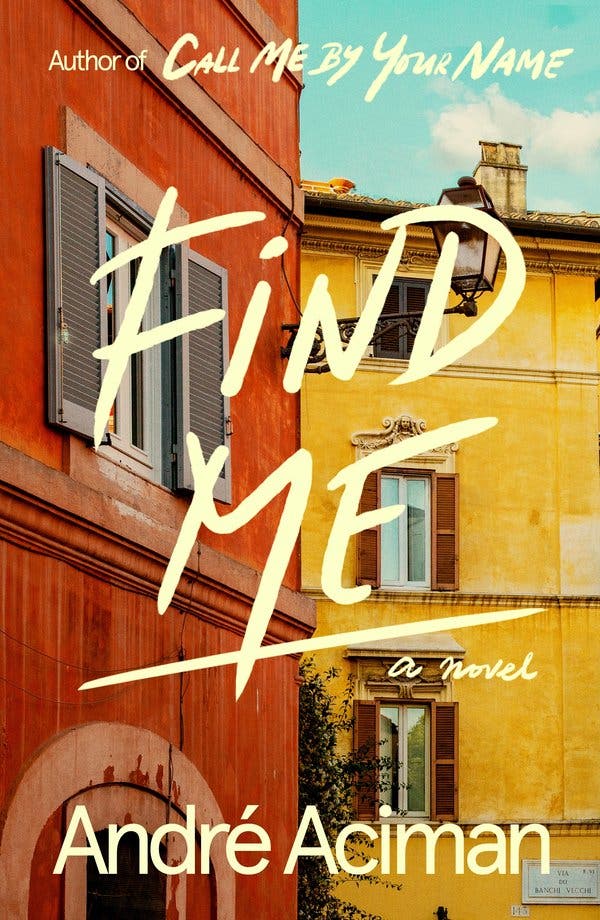FIND ME
By André Aciman
It is very difficult for any sequel to please everyone, the devotees of the original all clamoring for their various fantasies for the central characters. And this challenge is only compounded when that original has been adapted into a hugely successful film, the sort that spawns a flood of think pieces, viral memes and illustrated tributes.
Such is certainly the case for the sequel to André Aciman’s 2007 novel, “Call Me by Your Name,” the source material for the Oscar-nominated 2017 Luca Guadagnino film, which starred Timothée Chalamet falling for Armie Hammer in the lush Italian countryside and inspired a new wave of readership for the decade-old novel. (Feel free to Google “Elio and Oliver peach scene” to get a sense of the obsession.)
The structure of Aciman’s sequel, “Find Me,” is likely to disappoint those who’ve been eagerly waiting to find out what has become of Elio, the earnest teenage piano prodigy, and his summer guest, Oliver, an older, strapping American philosophy student of his father’s. The first half of the new book concerns neither of these two lovers, and is told entirely from the perspective of Elio’s now-divorced father, Samuel, as he finds himself infatuated with a much younger woman he meets on a train.

Aciman has already demonstrated his skill at portraying the terrifying and overwhelming experience of a romantic crush — the lust and violence and unease of it all — and this first section reminded me of a different European-set film, “Before Sunrise,” as Miranda and Sami wander around Rome deep in conversation, sharing stories and secrets. But even with the discomforting dynamic of their age difference, it’s hard to read this section without feeling impatient for our leading men to take the stage.
As for Elio and Oliver: The book’s second half picks up 15 years after we left them, each narrating his own section in the first person. Given the intensity of their past-life romance, it’s surprising that Aciman decides to keep the two separated for almost the entire novel: Elio living in Paris and embarking on a relationship with a sensitive and much older Frenchman, Oliver toiling away in New York City, unhappily married to a woman, with whom he has two sons.
Will Elio and Oliver eventually find their way back to each other? Or are they destined never to cross paths again, forever pining over the long-ago bond that bled one’s identity into the other’s? In Oliver’s words, “Waiting up is what we’ve done all our lives, waiting up allows me to stand here … at my end of our planet … for all I want is to think of you, and sometimes I don’t know who’s the one thinking, you or I.” His melodramatic anguish is echoed in Aciman’s swing at an emotionally satisfying conclusion.
“Call Me by Your Name,” the bulk of which takes place over the course of a few summer weeks, offered a visceral depiction of the all-encompassing and transformative properties of falling in love. “Find Me,” by contrast, turns its focus on the comedown, the second acts. It is a lyrical meditation on being forced to move to another location after the party’s over, on the Sisyphean task of trying to replicate the magic of young passion. “We’re not going to feed off the past, are we?” Oliver asks toward the end of the novel, and this question can almost be read as Aciman’s meta-commentary on the existence of “Find Me” itself. As much as we all may have craved 300 more pages of vivid descriptions of Oliver and Elio, together once more and vacillating between the throes of lust and torment,instead we are given a book that explores what can happen when your life gets away from you, when you realize just how much time you’ve wasted. It may not make for the stuff of glistening cinema, but it strikes an affectingly melancholy chord.
 EU News Digest Latest News & Updates
EU News Digest Latest News & Updates



